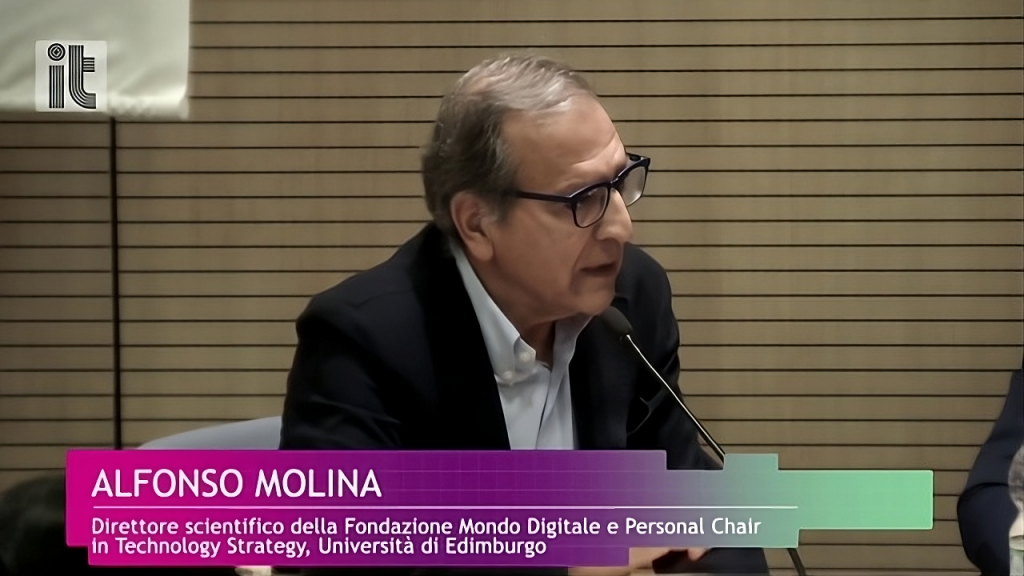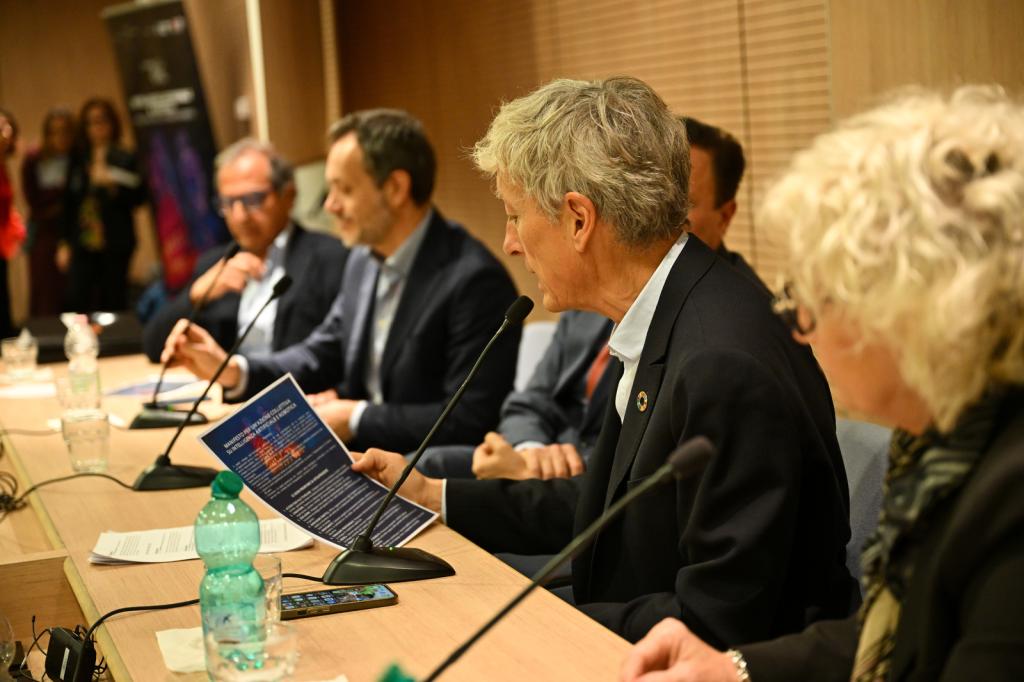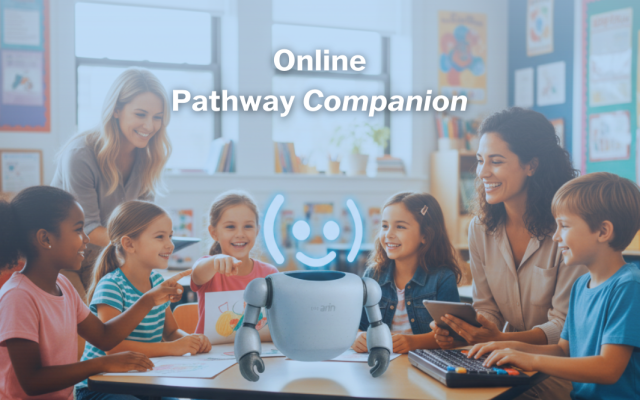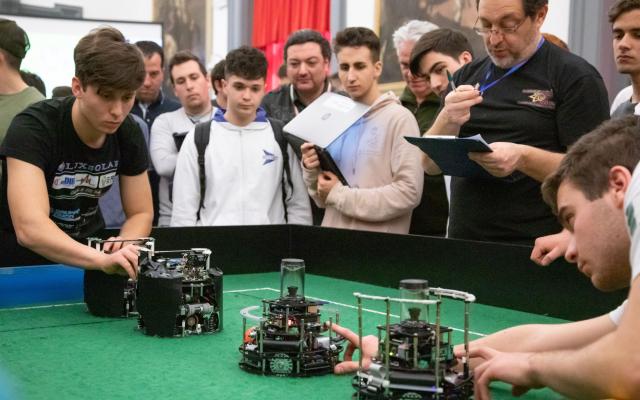Presented at RomeCup by Scientific Director Alfonso Molina
Today, at the inaugural conference of RomeCup 2024, the Scientific Director of the Fondazione Mondo Digitale, Alfonso Molina, presented the “Manifesto for Collective Action on Artificial Intelligence and Robotics,” an invitation to form a strategic alliance and work together on 10 concrete actions that will allow our country to advance towards a form of development based on skills and youth, so not to create further inequality, exclusion, and poverty.
Manifesto for Collective Action on Artificial Intelligence and Robotics
Premise
The rapid development of AI and its convergence with robotics are both a historical opportunity and an unprecedented challenge with a still unpredictable social impact. Besides the mismatch between job supply and demand, we are facing an even greater divide: the profound distance between our understanding of the scenarios in which we live and the complex technological transformation.
The Manifesto is a call to action for organisations and individuals to collaborate on a long-term collective initiative based on the following principles:
• Strength in numbers
• Skills excellence drives leadership
• Focusing on youth guarantees a long-term perspective on work, education, and the future of the country
• Inclusion and equality guarantee that the beenfits of AI and robotics will be enjoyed by everyone, avoiding further inequality, exclusion, and poverty
PRIORITY ACTION
- FAIR ACCESS TO TECHNOLOGY – Developing a medium- and long-term Italian initiative guaranteeing maximum inclusion and the reduction of any inequality.
- SHARING – Promoting collaboration and the exchange of information between organisations, individuals, and areas in the country, Europe, and worldwide.
- EDUCATION – Developing multidisciplinary didactic resources to improve the technological education of youth at all educational levels, with a special focus on gender equality.
- DIDACTIC INNOVATION – Providing teacher training with innovative didactic tools that will also be useful to understand the global challenges related to new technology.
- ORIENTATION – Supporting interconnected work, university, and school orientation projects to contrast educational poverty.
- PROFESSIONAL TRAINING – Promoting orientation and training activities for the development of qualified skills.
- RESEARCH – Supporting young researchers working on advanced technological solutions for the sustainable development of the planet and humanity.
- LIFELONG WORKER TRAINING – Investing in orientation and continuous training activities for workers, especially those in fragile conditions or at risk of losing their jobs.
- SPECIAL NEEDS AND DISABILITIES – Promoting programmes, services, and technological solutions for individuals with special needs and/or disabilities.
- COMMUNICATIONS – Informing and raising the awareness of public opinion on the benefits and potential risks of technology through a clear, transparent, and accessible language.





